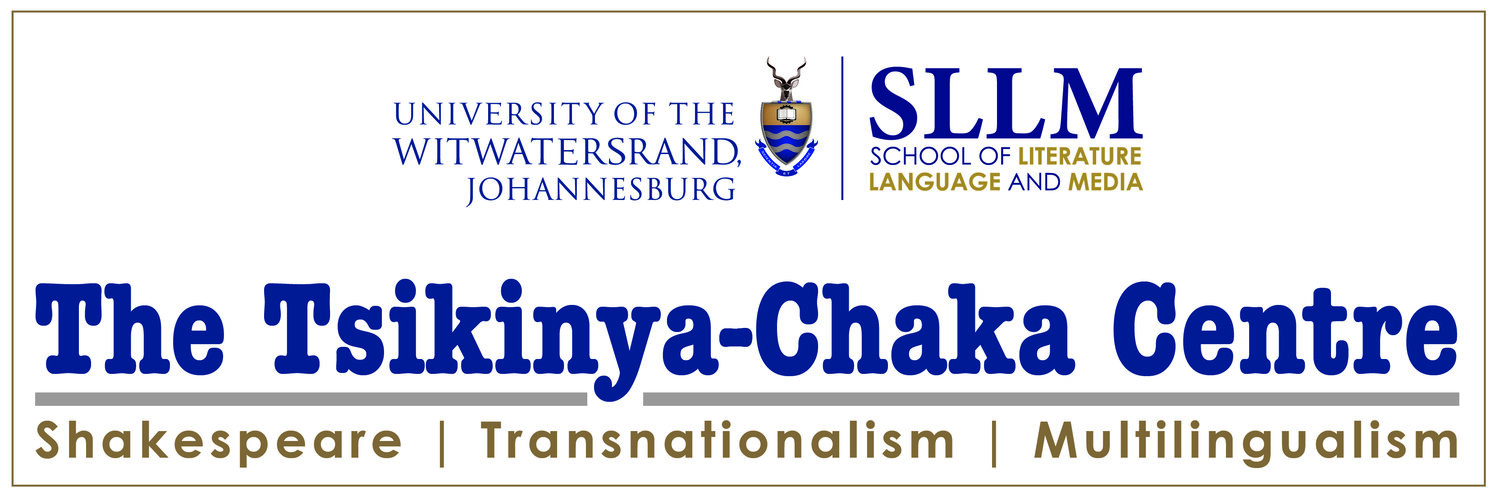South African Shakespeareans in Bayreuth
Over the past three years, the Tsikinya-Chaka Centre has been pursuing a collaboration with the University of Bayreuth and the University of Cologne as part of the Humboldt Foundation’s Research Group Linkage Programme. The project (titled “African Shakespeares: Translating the texts, transforming the field”) has resulted in numerous journal articles and book chapters, as well as conferences and workshops bringing together scholars, teachers and creative practitioners working on translations and adaptations of Shakespeare’s plays in African contexts.
In addition, the Humboldt Foundation’s emphasis on academic exchange has made it possible for South African and German members of the collaboration to travel between the two countries, meeting with fellow academics, conducting archival research and presenting a series of talks. In the first week of July, South African project members Marguerite de Waal and Linda Ritchie visited Bayreuth, where they were hosted by Serena Talento and Ifeoluwa Aboluwade of the “Africa Multiple” Cluster of Excellence (all four scholars are also TCC Affiliates). De Waal and Ritchie presented aspects of their research to the Cluster’s regular colloquium.
Left to right: Linda Ritchie, Marguerite de Waal, Ifeoluwa Aboluwade, Serena Talento.
All smiles: Marguerite de Waal, Serena Talento and Linda Ritchie.
Marguerite de Waal kicks things off with her presentation on South African productions of The Tempest in the post-apartheid era.
Linda Ritchie discusses assessment practices in South African schools.
De Waal spoke on “Performing The Tempest in South Africa (1989-2019)”, a paper developed from her doctoral studies and her ongoing research into post-apartheid stage productions of Shakespeare’s plays. Her talk discussed the ways that directors and performers tried (and often failed) to map shifting national narratives onto The Tempest over the course of a thirty-year period during which the country moved from a pre-democratic phase anticipating the fall of the apartheid government, to a post-1994 moment defined by hopes for the reconciliation and transformation of a divided society, to a general disillusionment with the failure of these ideals against the backdrop of increasing corruption and populist political rhetoric. De Waal explored how the relationship between Prospero and Caliban, taken as representative of a colonial paradigm and racialised conflict, became an inescapable and frequently inadequate vehicle for expressing complex and variable local experiences. Starting with a production by German director Dieter Reible in 1989 and moving on to various productions in 1994, 2002, and 2009, De Waal showed that theatre makers have at times emphasised the colonial allegory of the text or, conversely, moved beyond its usual boundaries, suggesting a need for something more or other than The Tempest to address contemporary concerns. This was most fully demonstrated by two further productions from the 2010s, Miranda’s Tale (2016) and Kunene and the King (2019), with their significant departures from the text and the politics it has come to represent.
A slide from Marguerite de Waal’s presentation on “Performing The Tempest in South Africa (1989-2019)”.
A slide from Marguerite de Waal’s presentation on “Performing The Tempest in South Africa (1989-2019)”.
Ritchie, too, drew on her PhD thesis in addressing “The Challenges of Teaching Shakespeare in South Africa’s Fledgling Democracy”. After providing an historical overview of the use of Shakespeare in South African education, she showed how in various ways post-apartheid teaching and learning of Shakespeare entails a perpetuation of colonial/apartheid dynamics. Ritchie then introduced translanguaging as a classroom practice that has the potential to disrupt this status quo, and reflected on her own experience of adopting a translanguaging pedagogical approach with both senior high school learners and undergraduate university students. While affirming that “Translanguaging pedagogy helps to decolonise the teaching of Shakespeare in the South African education system by allowing learners to interpret Shakespeare through their own cultural and linguistic lenses”, Ritchie concluded with a word of caution: one of the reasons that translangaging is not more widely implemented in South African classrooms is that “the externally set examinations still require ‘colonial’ readings of Shakespearean texts”.
A slide from Linda Ritchie’s presentation on “The Challenges of Teaching Shakespeare in South Africa’s Fledgling Democracy”.
A slide from Linda Ritchie’s presentation on “The Challenges of Teaching Shakespeare in South Africa’s Fledgling Democracy”.









